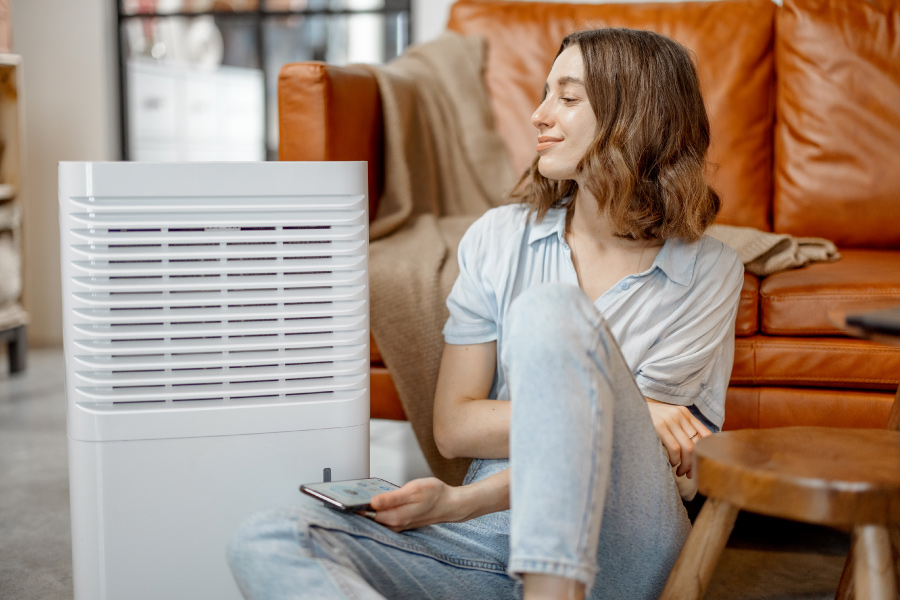Keep Your Air Safe & Clean During WildFire Season
Wildfire smoke is a danger, even if the fire is hundreds, maybe thousands, of miles away from Bozeman, MT. Air quality diminishes during wildfire season. To protect yourself and your home, it’s crucial for your home to have an air filter for wildfire smoke. A simple filter swap or installation can be the difference between facing negative health impacts and enjoying a safe and clean home. Let’s review the facts about wildfire smoke and why it’s important for your home to have air filters for forest fire smoke.
The Importance of a Wildfire Particulate-Free Home
In Montana, forest fires are becoming an increasingly frequent problem, with causes including drought, climate change, and fuel buildup in unburned forests. Forest fire smoke contains a mix of gasses and fine particles from burned wood and other organic materials. The lightweight nature of wildfire particulates means it can be swept into the jetstream and spread for thousands of miles. Fires on the west coast have the potential to decrease air quality on the other side of the continent.
These fine particles caused by wildfire smoke pose a significant threat to our health, especially our lungs. Impacts of inhaling wildfire smoke include coughing, phlegm, wheezing, and difficulty breathing. People often experience a range of both physical and mental symptoms, from headaches to fatigue and irritability [1]. Long-term exposure has been linked to respiratory infections, asthma, and an increased risk of death [2]. While some people experience a higher risk of smoke-related health impacts, everyone should be prepared to decrease their wildfire smoke exposure.
Tips for Improving Indoor Air with an Air Filter for Wildfire Smoke
For Bozeman homeowners with an HVAC system, there are easy steps to take that can improve the air quality during the smokey season. In fact, your home’s central air system is one of the simplest, most effective, and most affordable ways to filter indoor air.
Shut Off Outdoor Air Intake
In most home HVAC systems, the air filter is located before the blower motor, between the furnace’s heating aspect and an air duct. Typically, a heating and cooling system can shut off outdoor air intake and recirculate (and filter) indoor air. During wildfire season, this keeps smoke out while continuously filtering indoor air. If you’re unsure how to shut off the outdoor air intake, our team can send a technician to show you the filtration capabilities of your home’s HVAC system. They can also help adjust it to ensure your indoor air quality remains high.
Upgrade to a High-Efficiency MERV Air Filter
Improving the air quality in a home is often as simple as upgrading your indoor air filter. Some home air systems use low-efficiency air filters with a Minimum Efficiency Reporting Value (MERV) rating of 1–4. A medium efficiency filter (MERV 5–8) is sufficient for common indoor pollutants like pet hair and dust bunnies. But come wildfire season, we highly recommend using air filters with a MERV rating of 13-16, a true high-efficiency filter. Filters with a MERV value of 13 or above can remove up to 95% of all wildfire smoke particulates. While most home HVAC systems will accommodate a MERV filter of 13 or above without issue, some older systems may need a different model or a slight system modification.
Regularly Replace Your Air Filter
Regularly replacing your high-efficiency filter will help your HVAC system run better and improve your air. Smoky outdoor air conditions clog a filter faster than usual. To keep your air clean and reduce strain on the system during the high-use season, we recommend replacement around every three months. Our professionals can determine the right air filter, setup, and replacement frequency for your home.
Secure the Rest of Your Home
In addition to replacing and maintaining your HVAC air filters, there are other simple steps to take for a clean, safe home:
- Close doors, windows, vents, and dampers to reduce outdoor airflow.
- Don’t use bathroom fans when possible, as they can draw in the unfiltered, smoky air.
- Consider buying a plug-in air purification system if your system can not take a MERV 13+ rated filter.
- Clean your surfaces regularly with a wet cloth and damp mop.
Understanding the Air Quality Index (AQI)
The Air Quality Index (AQI) is a color-coded index used to report and forecast daily air quality. The Index measures the most common ambient air pollutants, including wildfire smoke. The higher the AQI, the more important it is to reduce exposure.
The AQI is typically low for most of the year in Montana, where we are less affected by urban pollution. Come wildfire season, it’s not unusual to see days and even weeks on end with the AQI between 101 to 200. This corresponds to “Unhealthy for Sensitive Groups” and “Unhealthy.” It’s important to be ready for the smoky season in advance by preparing your HVAC system with a high-quality air filter for wildfire smoke.
We Keep Your Indoor Air Safe
No matter what HVAC setup you currently have, Mountain Cooling & Heating can make the most of your system for a cleaner, healthier home. By choosing the best air filter for wildfire smoke, replacing filters regularly, and keeping your home closed off from outdoor particulate matter, you’ll be happy and healthy this wildfire season. To prepare your home for wildfire season, schedule an appointment with our team today. Our Bozeman-based HVAC experts can provide the necessary installations and recommendations to protect your home.
